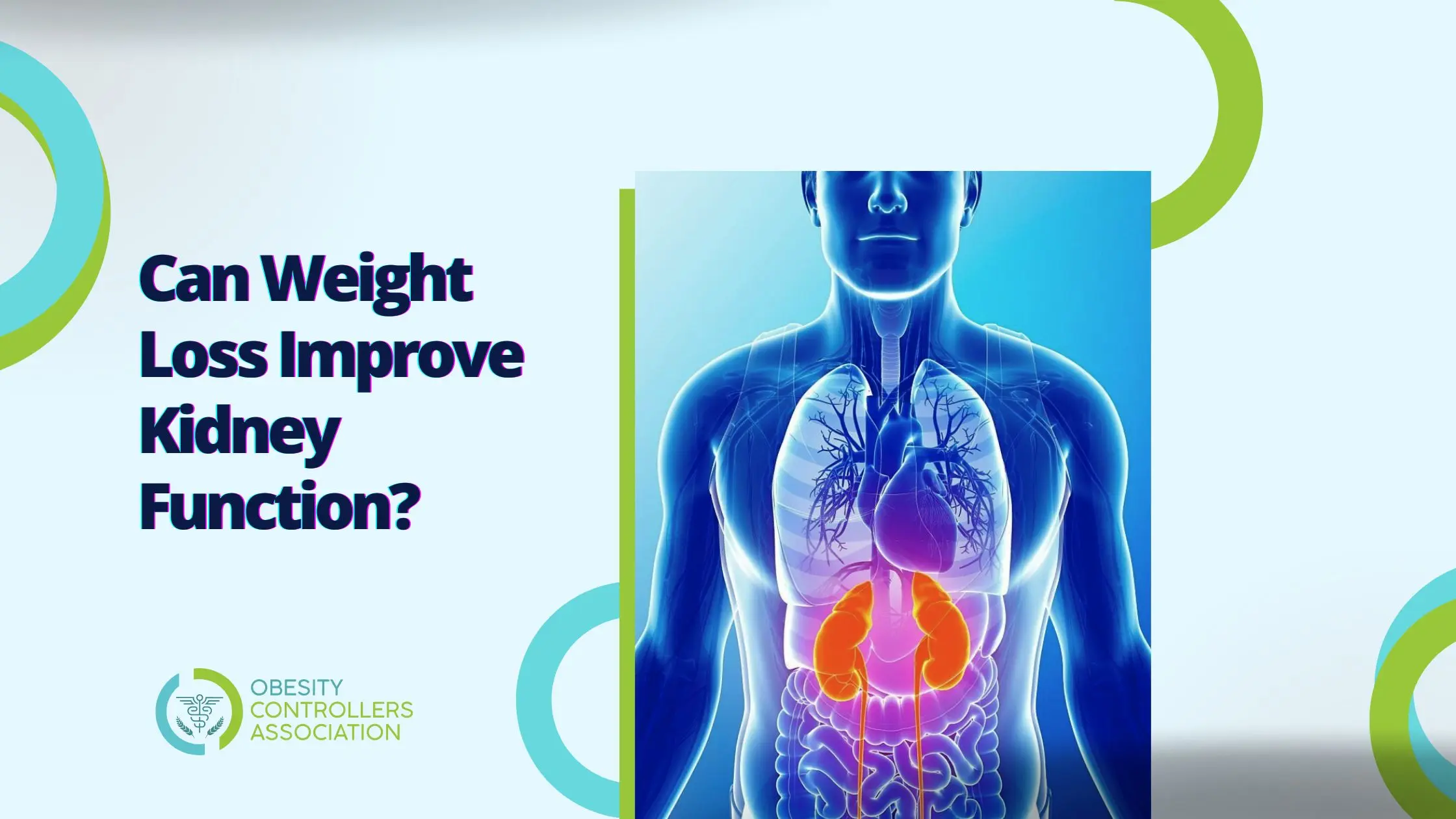Can Weight Loss Improve Kidney Function? The Role Of Weight Loss In Kidney Health!

Weight loss and kidney health have a close relationship. Research suggests that weight loss can help the kidneys function better by reducing the burden on them. Obesity is linked to kidney disease, and losing weight through healthy lifestyle changes could lower the risk of developing it.
Let’s explore the relationship between weight loss and the functioning of the kidneys in this article by highlighting how weight loss plays a major role in improving kidney function.
Understanding The Link Between Weight Loss And Kidney Function
Studies reveal that weight loss can lead to improved kidney function! It reduces the workload on the kidneys, by decreasing the number of waste products filtered. This can benefit individuals with chronic kidney disease and obesity-related problems.
Moreover, weight loss has a positive impact on the glomerular filtration rate, proteinuria levels, risk of kidney stones, and insulin sensitivity.

It’s important to remember that weight loss should be approached with caution. Crash diets or sudden weight loss can increase the risk of malnutrition or further strain on the kidneys. Therefore, it’s wise to seek professional help when it comes to comprehensive weight management strategies like healthy eating habits, physical activity, and gradual but steady weight loss.
A study conducted by the Johns Hopkins University School of Medicine found that even a modest 5-10% reduction in body weight can result in notable improvements in kidney function for overweight individuals with chronic kidney disease. So, shedding those extra pounds will not only lighten your body’s load but also give your kidneys a much-needed rest from their 24/7 filtration service!
Losing weight has immense benefits for kidney health. It relieves the strain on the kidneys and helps manage underlying conditions like high blood pressure and diabetes. Plus, reduced inflammation in the body is linked to better kidney function. To achieve weight loss, incorporate regular exercise into your daily routine, adopt a balanced diet, and stay hydrated. Remember: the only thing heavier than extra weight is the regret of not trying!
Effective Weight Loss Strategies For Improving Kidney Function
Weight loss is a key factor in improving kidney function. To make this happen in a healthy way, try these simple steps:

These steps will help you not only lose weight but benefit your kidneys too. But It’s important to note that everyone’s experience with weight loss may differ.
Monitoring And Tracking Progress
Monitoring and tracking progress is key to successful weight loss and kidney health. Keep an eye on your progress for positive outcomes! Here are some ways to monitor and evaluate your progress:
- Measure body weight and BMI to track overall progress.
- Check waist circumference to measure abdominal fat reduction.
- Record blood pressure levels to identify potential improvements in kidney health.
- Keep a food diary to pinpoint dietary patterns that affect kidney function.
- Monitor hydration levels to make sure you’re getting adequate fluids.
- Take blood tests to monitor creatinine levels.
You can also use wearable devices or smartphone apps to track heart rate, steps taken, calories burned, sleep quality, and stress levels. Incorporating these into your monitoring routine may help you stay motivated and give a complete overview of your health.
Don’t overlook the importance of tracking progress – it’s vital for achieving improved kidney function. To get the best results, make sure to actively manage weight loss and monitor your progress. Doing this helps you enjoy a better quality of life with improved kidney function! Start tracking your progress today – it’s essential for keeping your kidneys in shape.
Additional Tips For Maintaining Kidney Health
It’s vital for well-being to keep kidneys healthy. Here are a few tips to optimize them:
Time to get healthy & give those kidneys a boost! Being lighter means a better filtration crew!
Conclusion
Weight loss can improve kidney function! Shedding weight relieves the kidneys of added pressure from body fat. This reduces inflammation and oxidative stress, which can damage kidneys. Moreover, weight loss can help improve insulin sensitivity and blood pressure control, benefiting kidney health.
Losing weight also helps manage conditions like diabetes and high blood pressure, which cause kidney disease. So, weight loss can improve overall kidney functioning.
But, it is important to take a healthy and sustainable approach to weight loss. Crash diets or extreme measures may result in rapid weight loss, but can also harm kidney function. Therefore, always consult a healthcare professional or a registered dietitian before starting a weight loss journey.
Frequently Asked Questions
Yes, weight loss can have a positive impact on kidney function. Excess weight puts strain on the kidneys and can lead to various kidney-related diseases. By losing weight, the workload on the kidneys is reduced, helping improve their overall function.
The amount of weight loss required to improve kidney function varies from person to person. However, even a modest weight loss of 5-10% of your total body weight can significantly benefit kidney health.
While there is no one-size-fits-all diet for improving kidney function, consuming a balanced diet with reduced salt, limited processed foods, and adequate hydration can support kidney health. Consulting a healthcare professional or registered dietitian is advised for personalized dietary recommendations.
Yes, weight loss can benefit individuals with chronic kidney disease. It can help slow down the progression of the disease and reduce the risk of associated complications. However, it is crucial for individuals with CKD to consult their healthcare team for personalized guidance.
Rapid weight loss can lead to muscle breakdown, nutrient deficiencies, and dehydration, which may have negative effects on kidney function. It is essential to aim for gradual and sustainable weight loss with the guidance of healthcare professionals.





